Perspectives on Global Economic Developments: Achieving Growth with Financial Stability
Arguably, the unsustainable build-up of debt, in part fuelled by financial innovations, contributed to the great recession. Post-crisis, the recovery has been slow in coming. The West continues to rely heavily on loose monetary policies, while concerns over policy uncertainty and remaining financial risks, until recently, have inhibited an investments-led revival. The East responded with proactive counter-cyclical macro policies but had to also contend with excessive credit growth and asset inflation. The unfinished agenda in capital market and financial system development remains very much a concern; it has the potential to accentuate resources mis-allocation and poise a threat to overall macroeconomic stability. The major economies in the East, e.g., China, Japan, and India, are also launching structural reforms, including efforts to strengthen their financial systems. In this context of easy money and structural changes and challenges, our eminent panel will share their views on the prospects for the global economy, the critical risk factors we need to be aware of, and the key considerations relevant to long-term growth, particularly for Asia.
2014
Chairman of the ABFER Advisory Council and President of NUS
Achieving Growth with Financial Stability and Q&A
Panellists:
- Sir Howard Davies (Chairman of the Phoenix Group, ABFER Council Member)
- Mr Piyush Gupta (CEO DBS and ABFER Council member)
- Professor Masaaki Shirakawa (ex-governor, BOJ and ABFER Council member)
- Dr Duvvuri Subbarao (ex-governor, RBI and ABFER Council member)
Moderator:
- Professor Ilian Mihov (Dean of INSEAD and Vice President of ABFER)
Professor Bernard Yeung (President of ABFER Executive Committee and Dean of NUS Business School)
Speakers
-
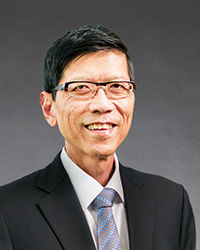
Professor Tan Chorh Chuan
Chairman of the ABFER Advisory Council and President of NUS (ABFER)
Tan Chorh Chuan was appointed President of the National University of Singapore in December 2008. He concurrently serves as the Chairman of the Board of the National University Health System. Prof Tan's additional appointments include Deputy Chairman of Singapore's Agency for Science, Technology and Research (A*STAR); Senior Advisor to the Governing Board of Duke-NUS Graduate Medical School; and Member, Board of Directors of the Monetary Authority of Singapore.
A renal physician, he obtained his medical training at NUS, and research training at the Institute of Molecular Medicine, Oxford. He was Dean of the NUS Faculty of Medicine from 1997 to 2000. He served as the Director of Medical Services, Ministry of Health, from 2000 to 2004, in which capacity he was responsible for leading the public health response to the 2003 SARS epidemic. He held the positions of NUS Provost, then Senior Deputy President from 2004 to 2008. He also played a key role in setting up the Duke-NUS Graduate Medical School, in his capacity as Deputy Chairman of the Governing Board from 2004 to 2007. As the inaugural Chief Executive of the National University Health System in 2008, he brought the NUS Medical and Dental Schools and the National University Hospital under single governance.
Prof Tan is a key leader in Singapore's Biomedical Sciences Initiative since its inception in 2000, for which he was awarded the National Science and Technology Medal in 2008. He also received the Public Service Star in 2003 for outstanding contributions to overcoming SARS in Singapore, and the Public Administration Gold Medal in 2004 for his work as Director of Medical Services in the Ministry of Health. Other awards include the Dr John Yu Medal from the George Institute for Global Health, Australia; the Albert Schweitzer Gold Medal from the Polish Academy of Medicine; Honorary Doctor of Medicine from King's College; Honorary Doctor of Science from Duke University; Honorary Doctor of Science from Loughborough University; Achievement Medal from the Singapore Society of Nephrology and the 1996 Singapore Youth Award.
Prof Tan, who has been a member of the World Economic Forum's Global University Leaders Forum (GULF) since 2008, was appointed Chair of GULF in 2014 for a two-year term. He also sits on the World Economic Forum's Science Advisory Committee. He was the Chairperson of the International Alliance of Research Universities, a consortium of 10 leading research-intensive universities from 2008 - 2012.
Prof Tan was previously a Commonwealth Medical Fellow, Wellcome Fellow, University of Oxford, and a Visiting Scholar to Wolfson College, Oxford. He is a Fellow of the Royal College of Physicians of Edinburgh, Royal College of Physicians of London, the American College of Physicians, elected Fellow of the Polish Academy of Medicine and Fellow of the Royal Geographical Society, UK. -
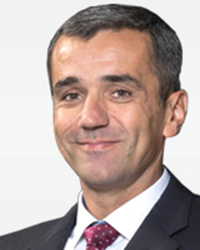
Prof Ilian Mihov
Dean of INSEAD, Professor of Economics, Novartis Chaired Professor of Management and Environment, Vice President of ABFER
Ilian Mihov was appointed Dean of INSEAD on October 1, 2013. Prior to his appointment as Dean, Professor Mihov acted as Interim Dean since March 2013. From 2011, he served as Deputy Dean for Faculty and Research responsible for the recruitment of new faculty, as well as for the development of over 140 professors at INSEAD.
Professor Mihov joined the INSEAD economics area in 1996. He has taught macroeconomics and econometrics in the MBA, EMBA, PhD and many executive education programmes as well as in the Global Leadership Fellows Programme of the World Economic Forum. He has been nominated several times as one of the best teachers in the MBA and EMBA programmes and he has won the Outstanding Teacher Award in 2006, 2008 and 2009.
Professor Mihov's papers have appeared in many academic journals including the American Economic Review and the Quarterly Journal of Economics. He has given interviews for BBC, CNBC Asia, Agence France Presse, Dow Jones Newswire and many other newspapers and magazines. Professor Mihov is a regular keynote speaker, lecturer and panellist at events organized by the PwC, WEF, KPMG, Hewlett-Packard, Bloomberg, Swiss Re, Alstom, Deutsche Bank, BNP Paribas and other companies.
He holds a PhD degree from Princeton University and a B.S. in business administration from the Moore School of Business at the University of South Carolina where, in 2006, he was recognised as a Distinguished Young Alumnus. -
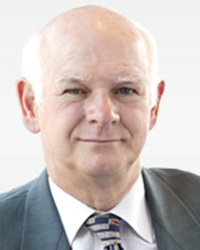
Sir Howard Davies
Chairman of the Phoenix Group, ABFER Council member
Howard Davies was appointed Chairman of the Board of Directors of the Phoenix Group on 1 October 2012. Howard is the Chair of the British Government's Airport Policy Review. He also is a Professor of Practice at the French School of Political Science in Paris (Sciences Po). He was previously the Director of the London School of Economics and Political Science from 2003 until May 2011. Prior to this appointment he was chairman of the UK Financial Services Authority from 1997 to 2003.
From 1995 to 1997 he was Deputy Governor of the Bank of England, after three years as the Director General of the Confederation of British Industry. Earlier in his career he worked in the Foreign and Commonwealth Office, the Treasury, McKinsey and Co, and as Controller of the Audit Commission. -
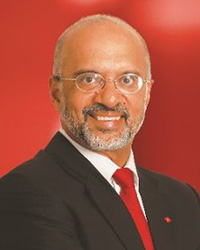
Mr Piyush Gupta
Chief Executive Officer, DBS Group and ABFER Council member
Piyush Gupta is Chief Executive Officer and Director of DBS Group, as well as Director of DBS Bank (Hong Kong) and The Islamic Bank of Asia. DBS is the largest financial services group in Southeast Asia, with assets of over S$400 billion. Prior to joining DBS, Piyush was Citigroup's Chief Executive Officer for South East Asia, Australia and New Zealand.
Some of Piyush's external appointments include serving as the Deputy Chairman of SPRING Singapore, as a member of the Group of Experts to the ASEAN Capital Markets Forum, and on the boards of the Institute of International Finance, Washington, The Institute of Banking and Finance, Dr. Goh Keng Swee Scholarship Fund, the MasterCard Asia/Pacific, Middle East and Africa Regional Advisory Board, and Human Capital Leadership Institute. He is an advisory board member of Sim Kee Boon Institute for Financial Economics, and a council member of The Association of Banks in Singapore. Piyush is also a Managing Council member of Indian Business‐leaders' Roundtable (under SINDA).
Pattijn brings with him more than 25 years' experience in the banking industry.
Piyush has a Bachelor of Arts (Honours) Degree in Economics from St. Stephen's College, Delhi University, India and an MBA from IIM, Ahmedabad. -
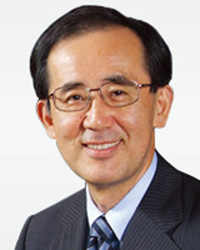
Professor Masaaki Shirakawa
Ex-governor, BOJ, ABFER Council member
Masaaki Shirakawa is former Governor of the Bank of Japan . He was appointed as Governor in April, 2008 and left the Bank in March this year. He was also Vice-Chairman of the Board of Directors of the BIS since January 2011. Currently, professor at Aoyama-Gakuin University and a member of Group of Thirty.
Masaaki Shirakawa joined Bank of Japan in 1972. At the Bank of Japan, his career encompassed both monetary policy and financial stability, and he held key positions, including Executive Director, responsible for laying the groundwork of Japanese monetary policy decisions.
Born in 1949, he studied economics at the University of Tokyo (B.A. in 1972) and at the University of Chicago (M.A. in 1977). He assumed Professorship at the Kyoto University School of Government from July 2006 to March 2008. -
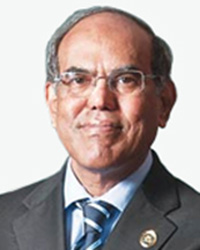
Dr Duvvuri Subbarao
Ex-governor, RBI, ABFER Council member
Duvvuri Subbarao served as Governor of the Reserve Bank of India for five years (2008-13) finishing his term in September 2013. Prior to that, Dr. Subbarao was Finance Secretary to the Government of India from April 2007 to August 2008 and Secretary to the Prime Minister's Economic Advisory Council from March 2005 to March 2007.
Dr. Subbarao joined the Indian Administrative Service (IAS) in 1972, topping the highly competitive civil services entry examination in that year. As a career civil servant, he worked in various positions in the state government of Andhra Pradesh and in the federal government of India acquiring hands on experience in public finance management at national and sub-national levels. He was also involved at the policy level in economic and financial sector reforms in India.
Dr. Subbarao was a Lead Economist in the World Bank (1999 - 2004), where his responsibilities involved analyzing the public expenditures of developing countries and advising them on fiscal policy issues.
Dr. Subbarao received BSc (Hons) in Physics from the Indian Institute of Technology, Kharagpur finishing at the top of his class; and MS in Physics from the Indian Institute of Technology, Kanpur. He went to Graduate School at Ohio State University where he got MS in Economics and later went to MIT as a Humphrey Fellow to study Public Finance. He earned his PhD in Economics from Andhra University for his thesis on "Fiscal Reforms at the Sub-national Level".
Dr. Subbarao came in as Governor of the Reserve Bank of India just a week before the global financial crisis erupted in full in mid-September 2008, and he led the effort to mitigate the impact of the crisis on the Indian economy and to institute economic and financial sector reforms reflecting the lessons of the crisis. His five year tenure was also marked by a calibrated monetary policy response to the growth-inflation balance and managing the growing strains on India's balance of payments.
Dr. Subbarao was alternate Governor for India on the Governing Boards of both the World Bank and the IMF. He participated actively in the G 20 meetings, the meetings of the International Monetary and Financial Committee (of the IMF), bi-monthly meetings of Governors at the Bank for International Settlements (BIS) in Basel and a host of other international committees and conferences where his views were respected for the emerging market perspective he brought to bear on the discussions, especially in crisis management and post-crisis reforms.
Dr. Subbarao has all along maintained a strong commitment to academic pursuits, and has written and spoken extensively on issues in macroeconomic management, public finance and financial sector reforms. During his tenure at the Reserve Bank, he was also recognized as a leading exponent of central banking issues from an emerging market perspective.
Dr. Subbarao is currently a Distinguished Fellow at the National University of Singapore. -
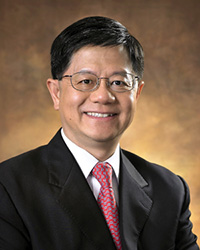
Prof Bernard Yeung
President of ABFER Executive Committee and Dean of NUS Business School
Bernard Yeung is the Dean and Stephen Riady Distinguished Professor in Finance and Strategic Management at National University of Singapore (NUS) Business School.Before joining NUS in June 2008, he was the Abraham Krasnoff Professor in Global Business, Economics, and Management at New York University (NYU) Stern School of Business. He has also served as the Director of the NYU China House, the honorary co-chair of the Strategy Department of the Peking University Guanghua School of Management, and Advisory Professor at the East China Normal University. From 1988 to 1999, he taught at the University of Michigan and at the University of Alberta from 1983 to 1988.
Professor Yeung`s research work has featured in more than 100 research publications covering topics in finance, strategy, foreign direct investment, international trade, international macroeconomics, institutional economics, sustainability, and economic history. His articles have appeared in journals in the fields of economics, finance, strategic management, international business, and accounting, as well as in top-tier media publications such as The Financial Times and The Wall Street Journal. He has contributed chapters in many leading books and written working papers.
He has also won several scholarly honours and awards for academic excellence, including the Irwin Outstanding Educator Award (2013) from the Business Policy and Strategy (BPS) division of the Academy of Management; the Excellence in Teaching Award (Executive Education) by Stern School of Business at NYU and Teacher Excellence Award (doctoral programmes) by University of Michigan Business School.
In addition, Professor Yeung has served on various committees and international advisory boards. He was a member of the Economic Strategies Committee in Singapore chaired by Mr Tharman Shanmugaratnam, Minister for Finance (2009). The committee was given the task of developing strategies for Singapore to build capabilities and maximise opportunities as a global city. Professor Yeung is also a member of several other committees, including the Management Advisory Committee of SPRING Singapore and the Financial Research Council of the Monetary Authority of Singapore.
Professor Yeung sits on the International Advisory Board of the Korea University Business School, the Intellectual Property of Singapore, the Institute of System Science Management Board, and the Strategic Recruitment Advisory Committee at NUS. He is the Dean Director on the Graduate Management Admission Council (GMAC) Board. He was also a member of the Maintenance of Accreditation Committee (MAC) and Asia Advisory Task force (AATF) of the Association to Advance Collegiate Schools of Business (AACSB). He is also an elected Fellow of the Academy of International Business (AIB).
Professor Yeung received his Bachelor of Arts in Economics and Mathematics from the University of Western Ontario and his MBA and PhD degrees from the Graduate School of Business at the University of Chicago.
- 1

